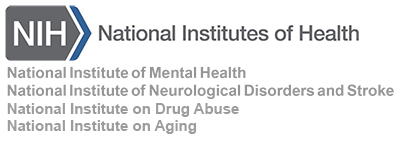Prediction of incident neurocognitive impairment by plasma HIV RNA and CD4 levels early after HIV seroconversion
| Title | Prediction of incident neurocognitive impairment by plasma HIV RNA and CD4 levels early after HIV seroconversion |
| Publication Type | Journal Article |
| Year of Publication | 2003 |
| Authors | Marcotte, TD, Deutsch, R, McCutchan, JA, Moore, D, Letendre, S, Ellis, RJ, Wallace, MR, Heaton, RK, Grant, I, HNRC |
| Journal | Archives of Neurology |
| Volume | 60 |
| Issue | 10 |
| Pagination | 1406-12 |
| Date Published | 10/2003 |
| Keywords | Internal, RNA, Viral |
| Abstract | BACKGROUND: Neuropsychological (NP) impairment is a relatively common sequela in human immunodeficiency virus (HIV)-infected individuals with advanced disease. Early antecedents of NP dysfunction, however, remain poorly understood. OBJECTIVE: To determine whether early markers of immunocompetence and viral replication in individuals who have undergone seroconversion would be of prognostic value in identifying subjects who would become cognitively impaired. METHODS: Seventy-four subjects with estimable seroconversion dates and normal cognition at baseline (a median of 1 year after seroconversion) received NP and laboratory evaluations, including reverse transcription-polymerase chain reaction measurements of plasma (N = 74) and cerebrospinal fluid (n = 47) levels of HIV RNA. Subjects were followed up longitudinally, and were considered to have reached the end point if they became cognitively impaired. RESULTS: Using Kaplan-Meier estimates, the subgroups with the most rapid progression to NP impairment were (1) subjects with early reductions in CD4 counts (<400 cells/microL at baseline; P =.007) and (2) those with elevated plasma HIV RNA values (>4.5 log10 copies/mL; P =.03) early after seroconversion. Using proportional hazards modeling, the highest-risk subjects had both CD4 counts less than 400 cells/microL and HIV RNA levels greater than 4.5 log10 copies/mL (risk ratio, 6.0; P =.01). In most subjects (7/9 [78%]), NP impairment developed before an acquired immunodeficiency syndrome-defining illness. CONCLUSIONS: Neurocognitive outcomes in HIV are strongly influenced by very early systemic virological and immunological events. Patients with high plasma levels of HIV RNA and low CD4 counts early after infection should be aggressively treated to prevent immunological decline and NP deterioration. |
| URL | http://www.ncbi.nlm.nih.gov/pubmed/14568811 |

